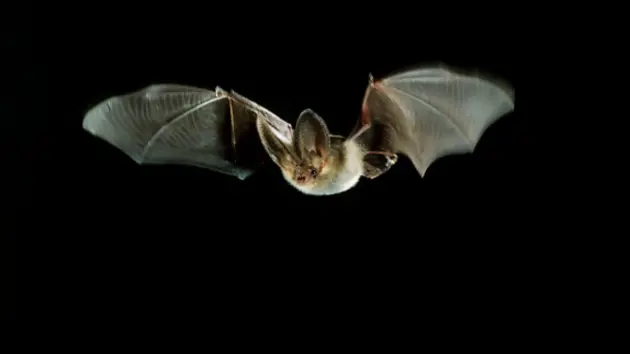
As cooler evenings set in, Berrien County health officials are reminding residents to take precautions against rabies as bats move closer to homes.
Health Officer Guy Miller says bats often enter houses during seasonal migrations, raising the risk of exposure. He urges residents to safely capture bats if there is possible contact and submit them for testing rather than killing them.
“It is very important that if somebody has had exposure to a bat — a bite, a scratch, or even if a bat was present in a bedroom while someone was asleep or unconscious — that animal should be tested for rabies,” Miller said.
Rabies is rare but almost always fatal once symptoms begin, which can include confusion, agitation, hallucinations, and paralysis. Miller says if a bat cannot be tested, health officials often recommend preventive treatment.
Treatment involves an initial injection at a hospital, followed by a series of rabies vaccines and antibiotics to prevent infection.
Miller also advises sealing small openings around homes, as bats can enter through holes as small as a quarter. He adds that pets should remain vaccinated to reduce the risk of spreading rabies through contact with wildlife.
The Health Department’s suggestions for safely capturing a bat for testing:
- Put on thick gloves before attempting to capture the bat.
- Wait for the bat to land.
- Slowly approach and place a small container over the top of the bat.
- Slide the cardboard or cutting board under the container, trapping the bat inside.
- Once the bat is in the container, securely tape the container shut so it cannot escape.
- Place a few very small holes, less than a quarter inch in size, in the container to keep the bat alive.
- Contact Berrien County Animal Services at 269.927.5648 between 8:30 a.m. and 4 p.m. Monday through Friday to receive instructions on next steps. After hours, call Berrien County Dispatch’s non-emergency line at 269.983.3060.
The bat will be sent to the Michigan Department of Health and Human Services for testing, and the results will be available within five days. Once the results are received, BCHD will work with you to determine if post-exposure treatment is needed.
For more information on rabies and what to do if you think you’ve been exposed, contact your medical provider or the Berrien County Health Department.